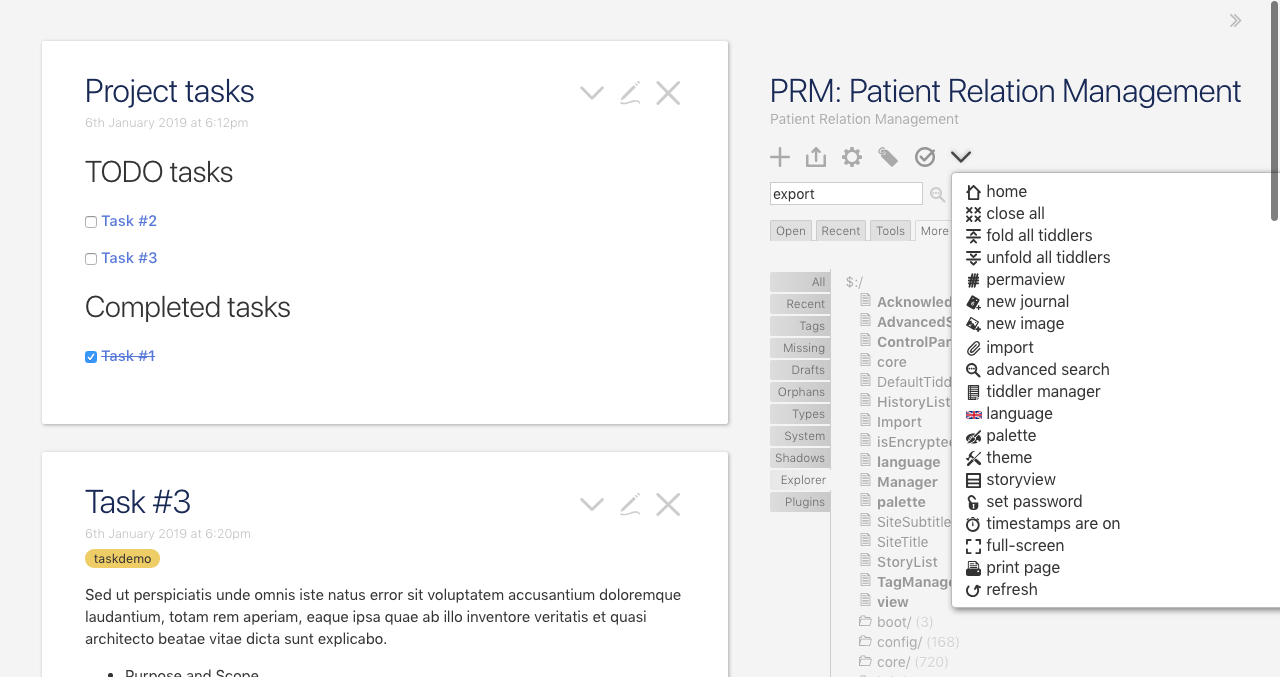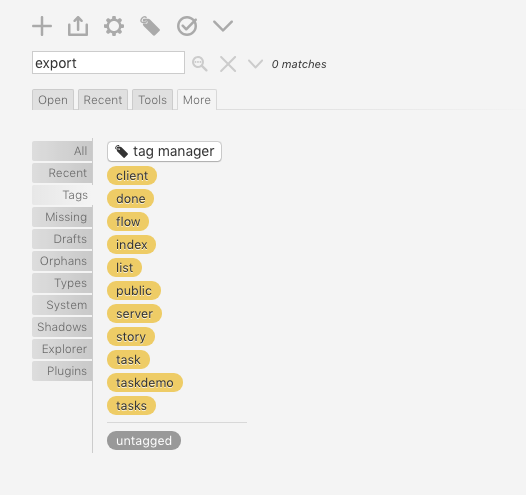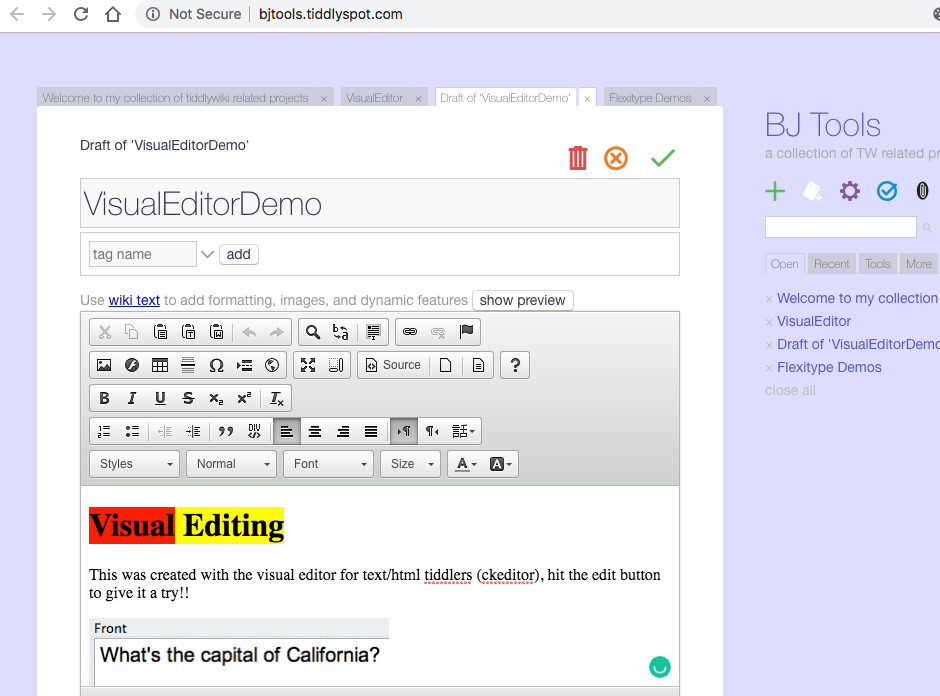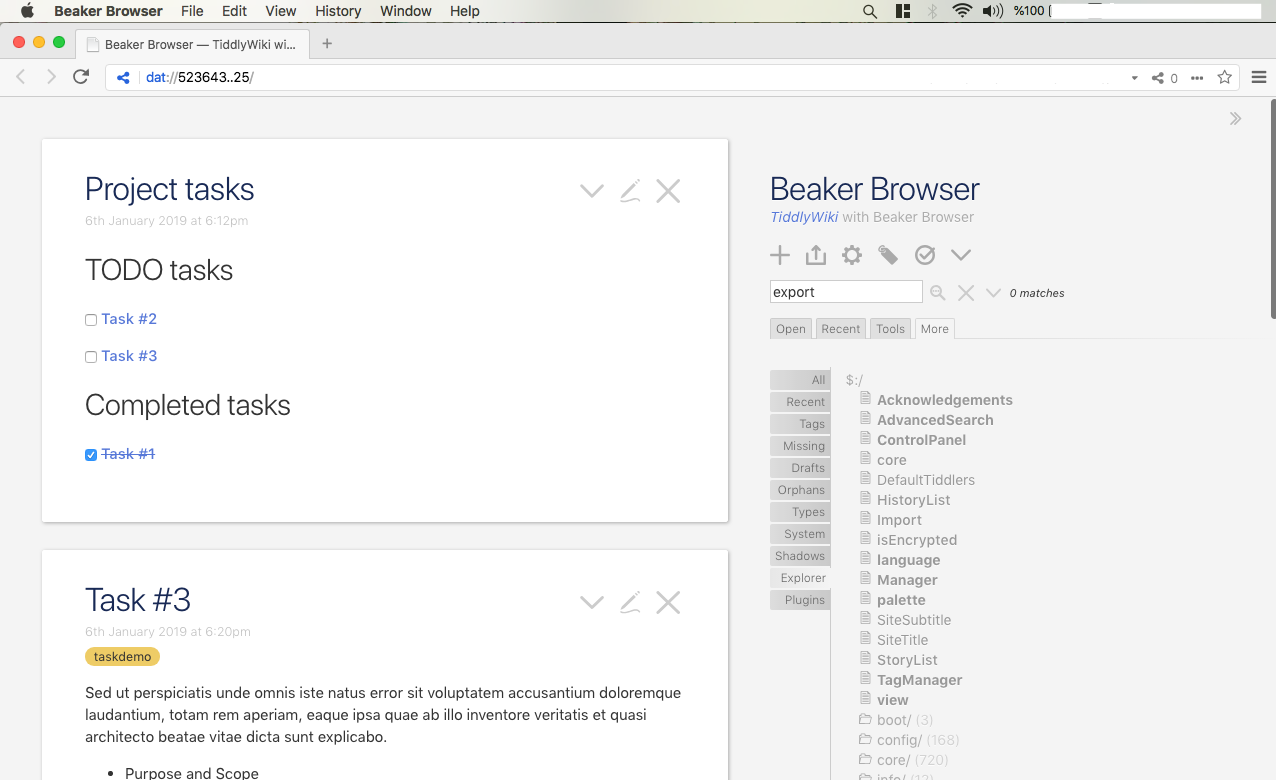TiddlyWiki with Beaker browser: Secure private note over peer-to-peer decentralized websites
TiddlyWiki with peer-to-peer browser
Table of Content
I had been using TiddlyWiki for years, It serves many purposes, for project management, private notes for my patients, communication with colleagues, recording study notes, writing, and simple to-do list. TiddlyWiki can do more, for one file application it can be extended with plugins and themes.
But first, let's introduce TiddlyWiki.
TiddlyWiki is a single HTML file application, first released by Jeremy Ruston and later maintained and developed by the community it achieved to have. It provides a unique approach to how it works and how the user controls it, store it and use it. Unlike other note-taking and wiki applications TiddlyWiki it does not require installation or complicated configuration.

TiddlyWiki features
No installation is required
Just done load one file rename it and it's ready. Open it in your browser name your wiki and start writing. That's it. There is no configuration, file uploading, server setup and of course database installation, configuration or setup
Extremely easy to use
Creating notes, journals, or editing the wiki settings is clear and obvious for users with different technical experience, for simple usage, there is no need for documentation. Create new, write your note, tag it then save. It supports tagging, searching and provide different format per note "tiddler". Supports multiple content types and image files including SVG " Scalable vector graphics " files.

Extremely lightweight.
TiddlyWiki file is about 2 MB. It works smoothly within browsers as well. The lightweight file makes it easy to share backup and store.
Security? TiddlyWiki got you covered
TiddlyWiki gives the user the ability to encrypt their notes and contents, It uses a powerful encryption library for browsers using Stanford JavaScript Crypto Library, It's simple yet powerful encryption library created by Stanford Computer Security Lab . User setup a password then his content is encrypted.
Multiple uses
It's not just about taking notes or journals, the user can create a to-do list and convert TiddlyWiki to a powerful task management tool. TiddlyWiki supports Images, different file extensions can be imported to the wiki and saved as HTML files, text files, and CSV files.
Backup and storage
Backup and storage are up to the user, They can put the file anywhere on their machines, on removable storage devices, or use online file storage services like Google Drive or Dropbox. Personally, I am using a combination of Dropbox and NextCloud alongside Beaker browser as my default TiddlyWiki editor.
Extend your TiddlyWiki with plugins
TiddlyWiki is powered by a community of developers who submit many plugins that empower the user experience and extend the default functionalities. TiddlyWiki has official plugins and many user-created plugins. Plugins are very easy to install and manage.

Installing official plugin can be done easily from the built-in plugin/ theme manager, however, the unofficial or user-generated plugins can be installed with simple drag-drop plugin TiddlyWiki readable link like ( $:/plugins/bj/plugins/marked )
Storage: Freedom to choose what and where.
TiddlyWiki has many platform options as multiple desktop browsers like Chrome, Firefox, Opera, Safari, and even Internet Explorer has its share. TiddlyWiki has an Android app and iOS app as well. For developers, there is a Google Drive extensions as well.
Exporting
Export your content to static HTML files, CSV, or JSON files, maybe export it to tiddly format and import it to other TiddlyWiki file.
Other features
- Multilingual support 26 languages are supported now
- Highly customizable
- Ease to share
TiddlyWiki with Beaker Browser and NextCloud

As I mentioned before, I am using a combination of self-hosted NextCloud and Beaker browser with TiddlyWiki, While Beaker browser is a peer-to-peer browser it is allowing TiddlyWiki to save automatically without the need to download the file, However, I mainly use it as a secure method to share certain TiddlyWiki with my colleagues and teamwork. As for backup, I used NextCloud desktop clients ( Mac OSX, Linux and Windows ) to Sync my wiki updates across my personal machines and work computer.
With Beaker browser you can share you TiddlyWiki notes within secs as allowing your friends to add, update and edit the wiki, which works perfect, It's fairly easy and simple to use. It allows the user to create private websites, share files, over dat:// protocol, new hypermedia a peer-to-peer protocol designed to create secure decentralized and open web.
Some use cases beyond the normal uses of TiddlyWiki
Secure private dynamic notebook
As a doctor, it's the perfect use for me is to share certain private medical notes with other doctors, combined with Beaker Browser.
PHR: " Personal Health Records"
That tiny file fits perfectly as PHR " personal health records", the patient may use it to create tagged logs for medication, diseases, appointments, lab results, and even his diet.
Project management
To-do list and tasks management are one of the things TiddlyWiki has been generous for me over the past year, It requires simple tweaking, but at the end, it'll provide a complete vertical log about all tasks notes and activities in one single file, easy to search and filter with tags.
Conclusion
TiddlyWiki can be as simple as taking notes or do more as an effective project management tool, however, it's a very useful and effective tool when it comes to productivity and security. When combining it with a decentralized peer-to-peer technology as dat:// protocol and Beaker browser, It opens the door to a new field of usability much centered around the user's privacy.











